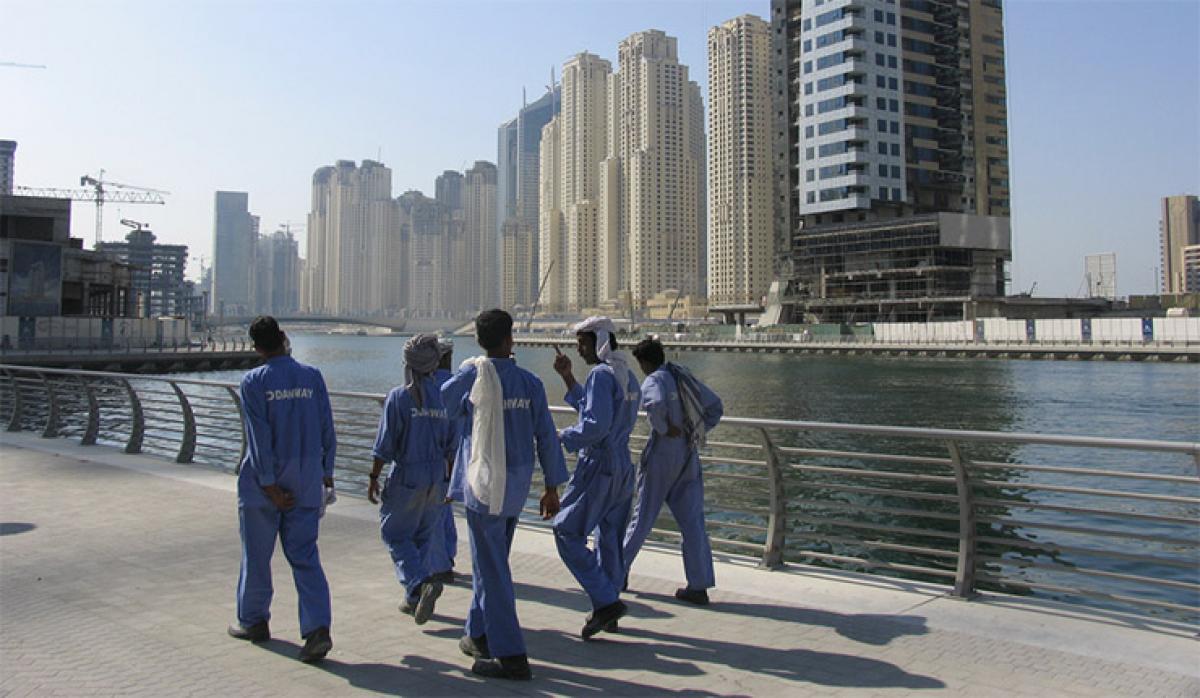Live
- India's growth on resilient trajectory, equity markets in consolidation phase
- KJo on 23 years of ‘Kabhi Khushi Kabhie Gham’: One of those pinch me moments
- WPL 2025 auction: Nandini, Kamalini set to be most sought-after names
- MP CM to inaugurate Sarsi resort in Shahdol, 200-bed hospital in Mauganj today
- TGPSC makes arrangements for Group-2 exams to be held tomorrow
- WPL 2025 Auction: When and where to watch, date, time, live streaming, venue
- Japan: Citizens protest US military-related sexual violence
- Buy on dips strategy working well in Indian stock market amid sharp rebound
- Sri Lanka concludes sovereign bond restructuring
- Lal Krishna Advani hospitalised at Delhi's Apollo Hospital
Just In

NRIs are spread across the globe. They are known to be hard working and also risk taking. They are in many professions and occupations. We have recently seen the Indian government stretching on a limb to get back trapped nurses and other professionals from war torn areas in Iraq, Syria and Yemen.
NRIs are spread across the globe. They are known to be hard working and also risk taking. They are in many professions and occupations. We have recently seen the Indian government stretching on a limb to get back trapped nurses and other professionals from war torn areas in Iraq, Syria and Yemen.

But the risk these workers and professionals face even during normal circumstances in the Gulf is much higher compared to the US. Official facts along with related figures reveal that an Indian living in any of the GCC (Gulf Cooperation Council) countries is at ten times the risk of death, compared to an NRI in the USA.
More than seven million Indians live and work in the six oil-rich nations of (Saudi Arabia, UAE, Kuwait, Oman, Qatar and Bahrain), accounting for more than 60 per cent of all global non-resident Indians. Qatar has recently come under fire for poor conditions for many of around one million workers, including a large number of Indians, toiling at construction sites linked to the 2022 Soccer World Cup: 1,387 Indians workers have died in Qatar alone from 2010 to mid-2015.
The deaths of workers from India, and those from other countries, such as Nepal and Bangladesh, have been a matter of controversy, with some saying the toll could rise to 1,200 before any matches start, an IndiaSpend analysis has revealed.The Qatari government strongly denies that poor working conditions have anything to do with the death toll.
.jpg)
The Indian government appears to concur: In its response to a question in the Lok Sabha, the government has said that most of the deaths in Qatar have been due to natural causes. Given that about 600,000 Indians live in Qatar that is plausible. But is the death toll among Indians in Qatar unnaturally high? Look at the number of Indians living overseas, by country, and on the number of Indians who died in countries across the world between 2010 and 2013 (See Table).
Source: Ministry of Overseas Indian Affairs, Lok Sabha
Statistics reveal that on an average, there are 53.6 deaths per 100,000 NRIs annually. However, this number conceals a sharp discrepancy. The average for the six GCC nations is 69.2 deaths, while the figure for rest of the world is 26.5 deaths, almost 60 per cent lower.
Saudi Arabia, UAE, Oman and Kuwait report between 65 and 78 deaths per 100,000 Indian workers. Qatar actually fares much better than these four states.
For the US and the UK, the toll is 80-90 per cent less than these four states, meaning, an Indian citizen in Kuwait or Saudi Arabia has ten times the risk of death compared to an NRI in the US.
Indians living in US and UK work mostly in the financial and technology sectors, whereas Indians in the GCC often work in riskier jobs, such as construction. Secondly, Indians in US and UK also have access to better healthcare, given their relatively better incomes and the better medical infrastructure of these states.
The data also show that the death rate in Qatar per 100,000 Indians is half that of Saudi Arabia. Assuming that Indians in Qatar work in similar roles as Indians in Saudi Arabia, Kuwait or Oman, it is evident that a lot of lives can be saved through better working conditions and better medical attention.
Qatar has probably come to the attention of Western media because it was awarded the 2022 Soccer World Cup and because of recent controversies linked to FIFA, the international soccer body—and, perhaps, that is the reason its standards are better than its neighbours. Similar publicity for other GCC nations could help improve the lives of expats in those countries. Indiaspend.org is a data-driven, public-interest journalism non-profit.

© 2024 Hyderabad Media House Limited/The Hans India. All rights reserved. Powered by hocalwire.com







